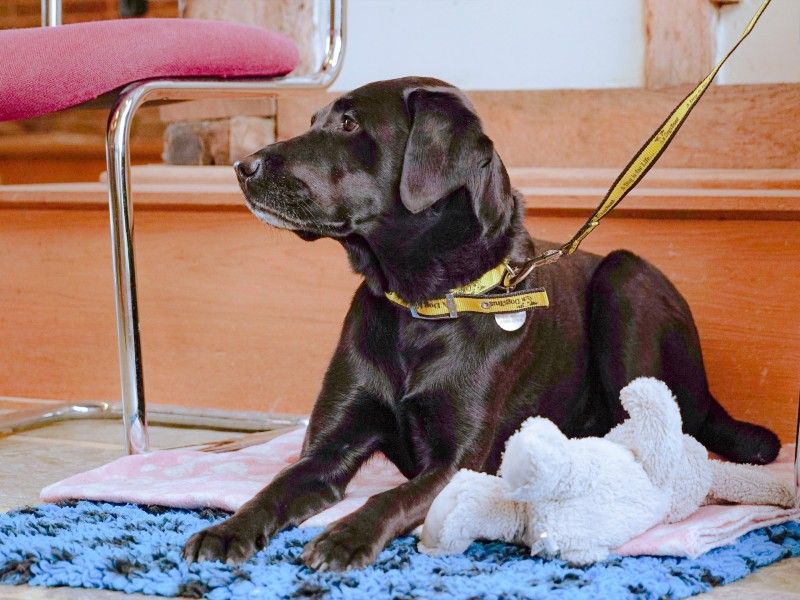What to do if your dog is aggressive at the vets
Is your dog aggressive towards the vet? Find out why this might be and what you can do to help.

Owners are often surprised to see their dogs behaving aggressively at the vet. This might be the only time they ever see their dog growling or snapping, which of course can be very upsetting. So, what’s going on?
Don't worry, aggressive behaviour is part of normal dog communication, and there's plenty we can do to help our dogs never need to communicate in this way.
Dogs might lunge, bark, growl, or snap at the vet for many different reasons, or a combination of those reasons, including:
- they are ill, injured and/or in pain
- they are frightened about what could be about to happen, especially if they’ve had an unpleasant veterinary experience in the past
- they are frustrated that they can’t escape or avoid being examined
- they have learned that aggressive behaviour can stop something unwanted from happening
- their more subtle attempts to tell you they are not happy — such as holding their ears back or licking their lips — have not made their situation better. When a dog behaves aggressively, this is often a last resort as all other attempts at communication and avoidance have likely been unsuccessful.
Top tips to help your dog
1. Never tell a dog off for wriggling or aggressive behaviour like growling, lunging, barking, snapping or biting. No matter how shocked and upset you are about how your dog is behaving, telling them off or becoming frustrated yourself never helps. Scolding a dog for growling may mean that next time they are worried they might snap instead of giving a warning growl. You can help your dog by staying calm and reassuring them.
2. Look out for the early body language signs that show your dog is feeling uncomfortable. Understanding how your dog communicates means you’ll be able to tell how they’re feeling. Whether they’re feeling confident and relaxed, or worried, frightened and frustrated, you can then react appropriately to keep them feeling safe and secure. Then they will likely trust you to make good decisions in different situations. Find out more about understanding dog body language.
3. You know your dog best — so advocate for them. Although your dog may express their feelings with their body language and vocalisations, it’s helpful to speak up for them too. Let your vet team know in advance if you suspect your dog might be stressed in this situation.
4. Take a short break to give your dog more time to get used to the situation. Let them have a sniff around. You might notice them give a big ‘full-body shake’ to relieve tension. Unless they aren’t allowed food (for instance if they’re having a blood test or procedure), let them enjoy some treats while you talk to the vet about your concerns. The vet can then continue with their examination, if necessary, in gradual increments.
What should I do if my dog is aggressive towards the vet?
Stop whatever is happening right away
Aggressive behaviours are warning signs that a dog is feeling under pressure and that their only option might be to bite. You can help them to feel better, and avoid injury to you or the vet team, by stopping whatever is happening right away.
Give your dog time to feel better
Talk to your vet about different options for assessing and treating your dog, and how urgently this must be done.
Should I muzzle my dog at the vets?
A muzzle will prevent your dog from being able to bite which can help the vet team feel confident in handling and treating them. So it's incredibly beneficial if your dog can wear a muzzle comfortably.
Learning to wear a muzzle can take time. The best thing to do it teach your dog to wear a muzzle way before they might need to wear one for real. Then you’ll feel confident fitting the muzzle, your dog won’t be worried about it and your vet should feel reassured. If your dog is particularly worried about being muzzled, seek professional help. There is a lot that you can do, with support, to help your dog feel differently about muzzles.
But remember, a muzzle will not change the way your dog feels. Allowing your dog the necessary time to learn to feel comfortable in the clinic is the best thing for everyone. If your dog does need help, there is plenty you and your vet can do together to help them to feel better about being in the clinic in the future.
Related articles


